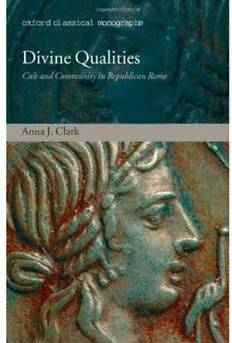
Divine Qualities: Cult and Community in Republican Rome PDF
391 Pages·2007·2.788 MB·English
Most books are stored in the elastic cloud where traffic is expensive. For this reason, we have a limit on daily download.
Preview Divine Qualities: Cult and Community in Republican Rome
Description:
This book explores an aspect of how Romans thought about themselves. Its subject is 'divine qualities': qualities like Concord, Faith, Hope, Clemency, Fortune, Freedom, Piety, and Victory, which received public cult in Rome in the Republican period. Anna Clark draws on a wide range of evidence (literature, drama, coins, architecture, inscriptions and graffiti) to show that these qualities were not simply given cult because they were intrinsically important to 'Romans'. They rather became 'Roman' through claims, counter-claims, appropriations and explorations of them by different individuals. The resources brought into existence by cult (temples, altars, coin images, statues, passwords, votive inscriptions) were visible and accessible to a broad range of people. Divine qualities were relevant to a broader social spectrum than is usually recognized, and this has important consequences for our understanding of Roman society.
See more
The list of books you might like
Most books are stored in the elastic cloud where traffic is expensive. For this reason, we have a limit on daily download.
